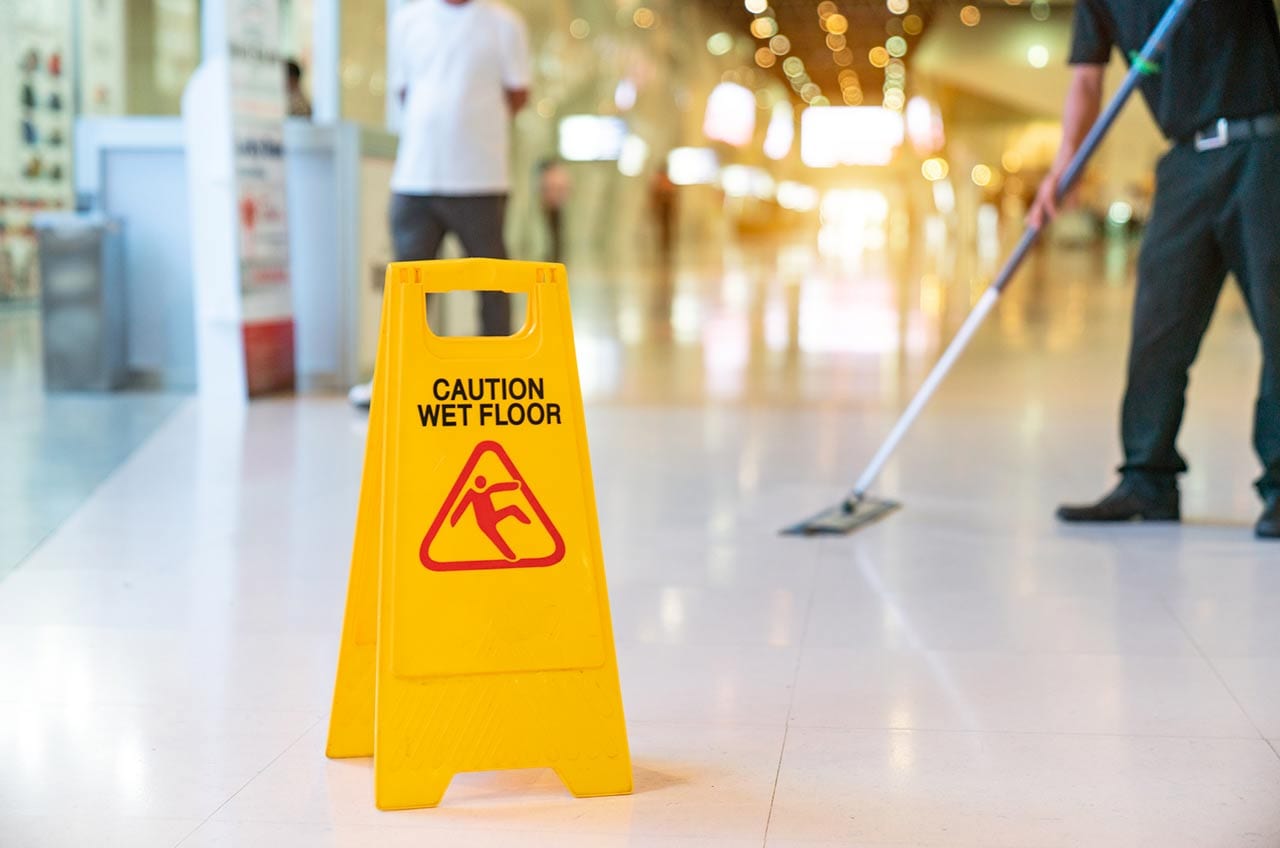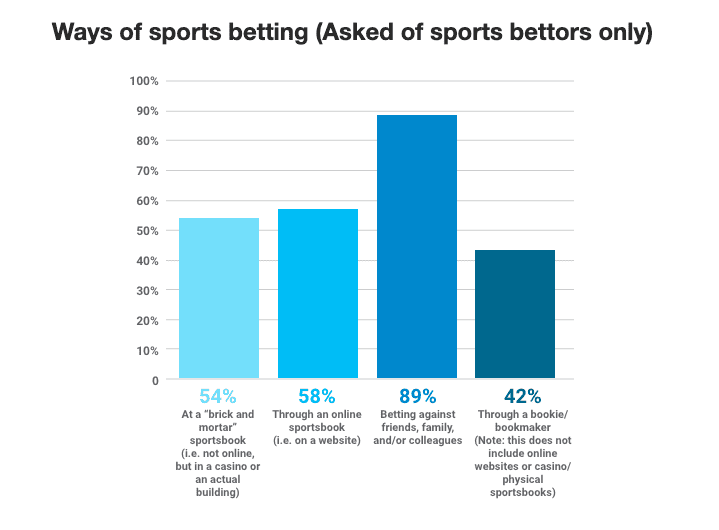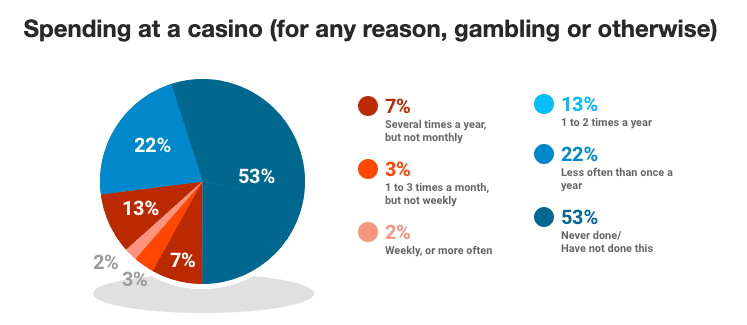
In terms of problem gambling, a mere 2% of respondents from West Virginia claim to engage in gambling activities once a week or more.
Although gambling once a week or more does not necessarily indicate problem gambling, it does serve to raise awareness about the issue.
In light of the recent legalization of West Virginia sports betting and the upcoming launch of online casinos in the state, it is crucial to acknowledge the potential issues associated with gambling, especially considering that March marked Problem Gambling Awareness Month.
A survey examining the gambling attitudes and experiences across the nation was recently published by the National Center for Problem Gambling (NCPG).
The national study “aimed to investigate the occurrence rates of different types of gambling” was commissioned by the NCPG.
In November, an online survey was conducted in both English and Spanish, utilizing a sample of 3,000 respondents nationwide, as well as in each individual state. The majority of respondents in the survey, approximately 500 people, were questioned.
According to the survey, the popularity of sports betting has increased in recent decades. However, it highlights that although only a small percentage of individuals engage in weekly gambling, many still perceive it as a form of entertainment that carries the risk of addiction.
In addition to national findings, the study encompasses outcomes for every state in the United States.
West Virginia sports betting trends
It should come as no shock that professional football is the sport most commonly bet on in West Virginia. As per the survey data, 65% of sports bettors placed their bets on football within the past year. College football was a close contender, with 54% of bettors engaging in wagering on it.
Some other sports that are favored for betting among West Virginians include:
- Pro basketball – 35%
- College basketball – 29%
- Baseball 21%
- Golf – 9%
- Ice hockey – 6%
You may be surprised by the betting preferences of West Virginians. The most favored method, with a whopping 89%, is placing bets with family and friends. Coming in second is online sports betting, with a considerable 58%.
It is intriguing to note that online sports betting was only introduced in the state in December 2018. However, as of now, mobile sports betting in West Virginia is not operational, and there is no specified timeline for its resumption.
The fact that illegal sports betting thrives as a massive industry in the US should come as no shock. However, the potential to diminish this illicit activity lies in the legalization and regulation of sports betting.

Furthermore, it is crucial to highlight that the majority of respondents in the survey concur on the significance of allocating funds towards educating the public about the traits of a problem gambler, and, most importantly, how to seek assistance.
West Virginia gambling at a glance
When examining gambling in West Virginia, it was found that the majority of West Virginians aligned with respondents across the nation.
Let’s take a glimpse into the gambling habits of West Virginia residents in the past year.
- 77% of people are involved in some type of gambling.
- 72% of individuals participate in playing any West Virginia Lottery game.
- The percentage for traditional sports betting is 20%.
- Fantasy sports accounts for 15% of the sports industry.
- 12% of people participate in either dog or horse racing.
- 18% of online or mobile gambling
The survey reveals another fascinating fact: over 50% of individuals residing in West Virginia have never utilized their funds at a casino, encompassing both gambling and other forms of expenditure.

Gambling draws strong opinions
Although only a small percentage of Americans admit to gambling once a week or more, there is a prevailing belief among many that it can be problematic and requires more intervention to discourage it. Some noteworthy findings from all respondents are as follows:
- A significant majority of 75% perceive addiction to gambling as closely resembling addiction to drugs or alcohol.
- A majority of 63% of individuals think that the gambling industry should increase its efforts in aiding individuals struggling with a gambling addiction.
When examining the survey question about respondents’ perception of gambling as immoral, the two figures appear to be contradictory. Merely 13% considered it immoral, while a majority of 57% disagreed, and 30% viewed it as neutral.
When discussing problem gambling, 85% of individuals consider an addictive personality as a probable underlying factor, while 78% believe that insufficient willpower is also a likely cause.
Get help for problem gambling in WV
Families can be greatly affected by problem gambling, but there are resources available to assist those who require help. Numerous casinos and sportsbooks provide the opportunity for individuals to practice “self-exclusion,” which essentially involves voluntarily prohibiting oneself from entering their premises.
In addition to providing assistance to individuals who acknowledge their gambling issues, the Problem Gamblers Help Network of West Virginia extends support to those who suspect they may have a problem. Here are some indicators that someone might be facing a gambling problem:
- You have made unsuccessful attempts to reduce or quit.
- Following your financial loss, you promptly make a comeback in order to recoup your losses.
- Deceive relatives and close acquaintances regarding involvement in gambling activities.
- It is necessary to increase the amount of money wagered with each gambling session.
- Gambling allows individuals to momentarily distance themselves from their problems.
In a recent statement to WVMetroNews.com, Jennifer Davis-Walton, the Program Director of the network, shared her insights.
The majority of individuals view gambling as a source of amusement, however, our focus is on reaching out to those who have developed a gambling problem. Our aim is to inform them that assistance is available, that there is hope, and that recovery is possible.
If you require assistance, please dial the toll-free number 1-800-GAMBLER.
